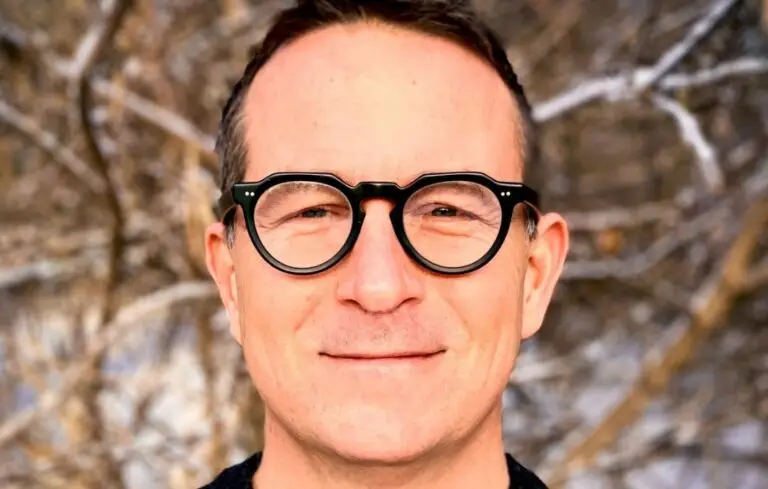To “Revolutionize” Major League Lacrosse
Andrew Murstein is president of New York’s Medallion Financial, which lends to the taxicab industry and other niche markets. He’s also the majority owner of Richard Petty Motorsports, which fields two NASCAR teams. His acquisition of the team in 2010 for $120 million in debt “started out purely as a business decision, but I have come to love and appreciate NASCAR,” he says. He feels “tremendous pleasure when we win or perform well and aggravation when we don’t.”
He recently acquired the New York Lizards “because lacrosse is one of the fastest-growing sports in the U.S.” In what he calls a move that will revolutionize the sport, he drafted goalie Devon Wills, the first-ever female player in Major League Lacrosse, in the supplemental draft opening the 2014 season.
“I don’t believe team owners should go into the dressing room and travel with the team,” he comments. “There should be a clear separation between the athletes’ world and the owner’s world. I wouldn’t want them stepping in and parading people around my office or my bathroom. We treat this as a business, and them as professionals.” However, that philosophy didn’t protect him from getting doused with champagne after a recent NASCAR victory.
Can a Silicon Valley CEO Fix the Sacramento Kings?
To the dismay of its fans, the NBA’s Sacramento Kings finished dead last in ESPN’s ranking of the 122 teams in the NBA, NFL, MLB and NHL last September. But that didn’t discourage Vivek Ranadivé, CEO/founder of TIBCO, the $1 billion software infrastructure company. He bought a majority interest in the team for $535 million last year, one day after the league rejected a bid by Steve Ballmer and hedge fund manager Chris Hansen to buy and move the Kings to Seattle.
“I’m a huge basketball fan,” Ranadivé says. “I really felt I owed it to the region and the team’s fans to keep the Kings in the area.” The owner group is building the league’s first indoor-outdoor arena, set to open next year in Sacramento’s Downtown Plaza. TIBCO-powered technology will make the entire facility ticketless and cashless and provide fans with personalized, real-time offers on their smart phones. Ranadivé told Commissioner David Stern’s group he wants to make the Kings an “NBA 3.0 team.”
Going against convention, Ranadivé hired a coach before he hired his general manager. He re-signed the team’s young star, DeMarcus Cousins, despite his well-publicized troubles and persuaded Shaquille O’Neal, a 15-times All-Star Center, to become a minority owner and to mentor Cousins. Ranadivé hopes to make the Kings a global brand with a big presence in India and China. “I think basketball will become the sport of the 21st century, like soccer was in the 20th,” he says.
Before buying the Kings, Ranadivé led a group that out-bid Larry Ellison to buy the NBA’s Golden State Warriors. He used technology to analyze online ticket sales patterns and identify the best combinations of players. The team’s valuation increased from $324 million to $555 million in two years. (Ranadivé had to divest to buy the Kings.)
Ranadivé, who left Bombay at age 16 with $50 in his pocket to earn master’s and bachelor’s degrees in electrical engineering at MIT, grew up with cricket and soccer. In fact, he had never even held a basketball when he began coaching his daughter’s middle-school team so he could spend more time with her. The team lacked size and athleticism; but, using analytics from his business, Ranadive decided to deploy an unconventional full-court press and took the team all the way to the National Junior League championships. Author Malcolm Gladwell recounted the story in his book, David and Goliath: Underdogs, Misfits, and the Art of Battling Giants.
Doubling Fan Attendance
Baseball can be profitable if it’s operated “like a business rather than a vanity investment,” asserts Andrew Berlin, who became sole owner of the South Bend Silver Hawks of the Class A Midwest League three years ago. He says he manages both the team and his company with a single philosophy: Thrill the customer.
The CEO of Chicago-based Berlin Packaging, which provides containers and dispensing systems, doubled fan attendance since he bought the team. He redesigned the park to make it more family-friendly, with a kids’ splash-pad playground among its many features. “We re-imagined the fan experience,” says Berlin, who also applies his thrill-the-customer philosophy at his $800 million company with extras like interest-free financing. “We have a truly sustainable business at this point. I’ve focused my involvement on the business fundamentals of the Silver Hawks. We want to sell tickets, engage sponsors, provide a great experience and connect with the media and community audiences. All of these require skills that are not unique to baseball, so I’ve been glad to dive in. There are other areas where I am learning and listening. I’m fortunate to have a great front-office staff that knows how to run a team.”
An affiliate of the Arizona Diamondbacks, South Bend’s Silver Hawks finished first in the Midwest League’s Eastern Division last year. Its name is a tribute to the Studebaker Silver Hawk automobile that once was manufactured across the street from the stadium. Berlin is also a limited partner of the Chicago White Sox.
High on the Sky
“I am not a major sports nut,” says Michael J. Alter, president of The Alter Group, a leading office developer based in Skokie, Illinois. “I had no notion of owning a professional sports team.” But in 2005 he bought the franchise for Chicago Sky, one of the six teams in the WNBA’s Eastern Conference, for $10 million because “it did not make sense to me that the third-largest city in the country and frankly, in my opinion, the best sports town in the country, did not have a WNBA team.”
“I treat the Sky not as an avocation but as a business,” he says. “We’ve come a long way since 2005, when we marched our new coach—NBA Hall-of-Famer Dave Cowens—and new mascot, the Sky Guy, through the streets of downtown Chicago while trying to drum up interest.”
Last year, the team made the playoffs for the first time in franchise history. This helped increase sponsorship and attendance by 20 and 30 percent, respectively. One of the team’s games on ESPN 2 garnered the highest audience for a WNBA game in nine years. Alter is impressed “not only by the WNBA players’ prowess as athletes but their intelligence, their passion, their dignity and their power to inspire.”
Owning the Dolphins, Living the Dream
“When I read the paper, the first section I go to is the sports section,” says Stephen M. Ross, chairman and majority owner of Related Companies, whose global real estate holdings are valued at over $15 billion. “Since I wasn’t going to make it as a player, it was a dream to become an owner.”
Ross became 50 percent owner of the Miami Dolphins and its stadium for $550 million in 2008. He bought an additional 45 percent the following year for another $550 million. Since then, he has brought in Gloria Estefan, Marc Anthony and Venus and Serena Williams as minority owners. Ross says he intends to keep the team in Miami despite having failed to secure Florida and Miami-Dade funding to renovate Sun Life Stadium.
Ross, who has a net worth estimated at $4.8 billion, is a former minority partner of the New York Islanders and was part of a group in 1990 that tried to bring Major League baseball to Miami before the Marlins were founded. He also tried to buy the New York Jets in 1999 and was on the executive committee that hoped to bring the Summer Olympics to New York in 2012. An active philanthropist, Ross ranks second only to Michael Bloomberg in gifts for higher education. He lives and works at one of his properties, the Time Warner Center in New York. His current projects include the 26-acre Hudson Yards development on Manhattan’s West Side.
George Nicholas (georgenicholas@mindspring.com) is a journalist and communications consultant in New York.







